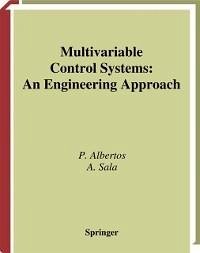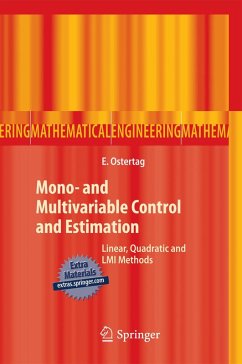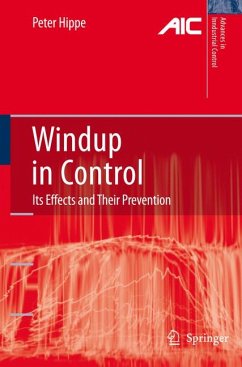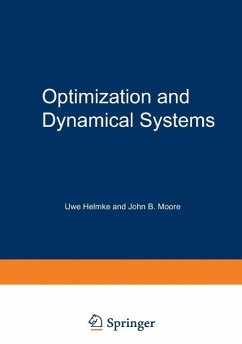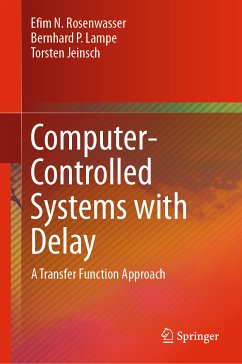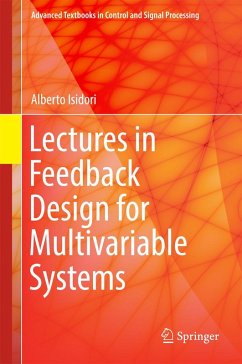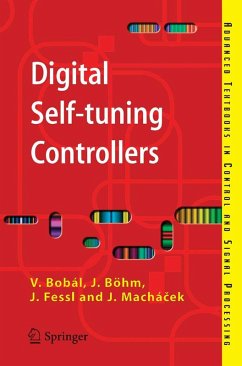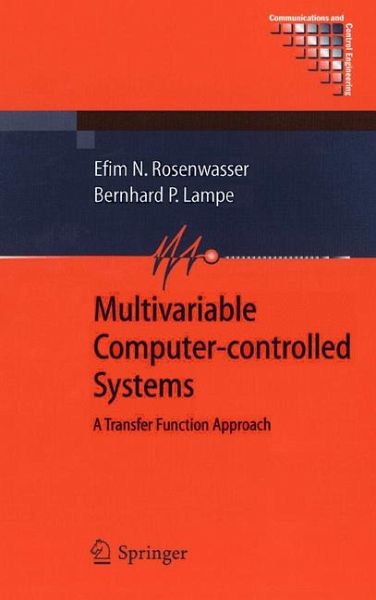
Multivariable Computer-controlled Systems (eBook, PDF)
A Transfer Function Approach
Versandkostenfrei!
Sofort per Download lieferbar
128,95 €
inkl. MwSt.
Weitere Ausgaben:

PAYBACK Punkte
64 °P sammeln!
Although the transfer function approach is widely used in classical control theory, computer-controlled continuous-time processes are a very important subset of periodic sampled-data systems which are not treatable using ordinary transfer functions.The authors show how parametric transfer functions, which incorporate time-dependence, can be used to give a complete exposition of analysis and design methods for multi-input, multi-output (MIMO) sampled-data systems.Multivariable Computer-controlled Systems is divided into three parts:- Preliminary algebraic material necessary in later chapters.- ...
Although the transfer function approach is widely used in classical control theory, computer-controlled continuous-time processes are a very important subset of periodic sampled-data systems which are not treatable using ordinary transfer functions.
The authors show how parametric transfer functions, which incorporate time-dependence, can be used to give a complete exposition of analysis and design methods for multi-input, multi-output (MIMO) sampled-data systems.
Multivariable Computer-controlled Systems is divided into three parts:
- Preliminary algebraic material necessary in later chapters.
- Control problems, important in their own right but also having a substantial bearing on what follows.
- Frequency methods for the investigation of MIMO sampled-data systems (parametric discrete-time models; stability; stochastic methods; H2 optimization and L2 design).
Appendices covering basic mathematical formulae and two MATLAB® toolboxes round out this self-contained guide.
The authors show how parametric transfer functions, which incorporate time-dependence, can be used to give a complete exposition of analysis and design methods for multi-input, multi-output (MIMO) sampled-data systems.
Multivariable Computer-controlled Systems is divided into three parts:
- Preliminary algebraic material necessary in later chapters.
- Control problems, important in their own right but also having a substantial bearing on what follows.
- Frequency methods for the investigation of MIMO sampled-data systems (parametric discrete-time models; stability; stochastic methods; H2 optimization and L2 design).
Appendices covering basic mathematical formulae and two MATLAB® toolboxes round out this self-contained guide.
Dieser Download kann aus rechtlichen Gründen nur mit Rechnungsadresse in A, B, BG, CY, CZ, D, DK, EW, E, FIN, F, GR, HR, H, IRL, I, LT, L, LR, M, NL, PL, P, R, S, SLO, SK ausgeliefert werden.




